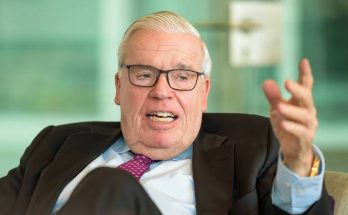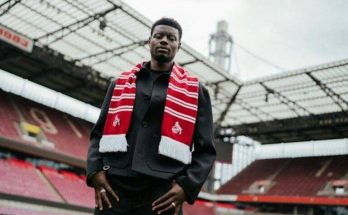This area, I was raised here, it defined who I am. That’s what Tyler Glasnow would tell you if you asked him what Los Angeles meant to him. It’s not just the place he grew up — it’s the foundation of who he’s become, both as a person and a player. To understand what winning in LA means to him, you have to understand where he came from, what it took to get here, and why this city holds weight far beyond the palm trees and spotlights that people so often associate with it.
Tyler Glasnow is a product of Southern California, a place that shaped his early love of the game and molded his relentless drive. Long before he stood tall on a major league mound, long before the sell-out crowds and national television broadcasts, he was just a lanky kid with a raw arm, throwing bullpens under the California sun and dreaming of a shot. Not a spotlight, not a contract, just a shot. In places like LA, dreams are currency. Everyone’s chasing something, but the real ones — the ones who make it — they’re chasing it with purpose, and they’re fueled by something deeper than fame. For Glasnow, it was always about proving that he belonged.
That desire to belong, to validate all the hours and sacrifices, followed him through his early years. Drafted by the Pirates in the fifth round out of high school, he was a high-upside gamble, a tall righty with electric stuff and a delivery that needed work. In many ways, he was raw clay — but the fire was already lit. His minor league days were about growth, about sharpening his command and finding a rhythm with his mechanics. The journey wasn’t smooth. There were setbacks, doubters, whispers about whether he could harness his potential. But for Glasnow, all of that was just noise. What mattered was that he knew who he was, and more importantly, he knew where he came from.
There’s something about growing up in LA that teaches you to block out the noise. This is a city full of stars, of distractions, of competing voices trying to pull you in different directions. If you don’t know who you are, LA will swallow you whole. But if you do — if you know your roots, if you’ve been built from the inside out — then LA becomes a kind of fuel. It becomes a mirror. It forces you to face yourself, every day. That’s what Glasnow did. He learned to tune it all out, to focus on the game, the work, the process. He never chased the celebrity. He chased the ball, the strike zone, the excellence that separates the good from the great.
So when the Dodgers came calling, it wasn’t just a trade. It wasn’t just another team in another city. It was home. It was a full-circle moment for a kid who used to sit in the stands watching this team, dreaming of what it would feel like to take that mound wearing Dodger blue. This wasn’t just business — it was personal. And with that comes pressure, but also a kind of peace. Because there’s something grounding about returning to where it all started. You see the streets that raised you. You hear the voices that believed in you before anyone else did. You feel the weight of expectation, but you also feel the pride of representing something real.
And make no mistake — the Dodgers didn’t just bring Glasnow in for sentiment. They brought him in to win. This team isn’t about nostalgia. It’s about October. It’s about banners. And Glasnow knew that from day one. He knew that every time he took the ball, he’d be carrying more than just his own expectations — he’d be carrying the weight of a city that demands excellence, and that remembers every pitch, every moment. LA doesn’t forget. It celebrates heroes, but it holds you accountable. That’s the kind of place Glasnow wanted to win in. Not for the cameras, not for the headlines — for the legacy. Because winning in your hometown means everything.
It means you get to bring the journey full circle. It means the same people who watched you grow — your friends, your family, your high school coaches — they get to see you not just arrive, but thrive. It means you take the same freeways to the stadium that you used to take to Little League. It means the places that shaped your childhood become the backdrop to your biggest triumphs. And that kind of symmetry? You can’t manufacture that. It has to be earned.
And Glasnow has always been about earning it. His game is built on firepower — a fastball that explodes and a breaking ball that dives like it’s falling off a cliff — but what sets him apart is his edge. His mentality. He pitches like a guy who knows what it took to get here and who refuses to go backward. He’s not here for the applause. He’s here for the fight. And when you take that kind of mentality and drop it into a city like LA — a city that values both style and substance — something special happens. The spotlight doesn’t faze him. The pressure doesn’t crack him. If anything, it sharpens him.
That’s why every win here means more. Every strikeout, every roar from the crowd, every moment when he walks off the mound with his chin high — it echoes louder in this city. Because this is home. Because these aren’t just fans. They’re his people. The same streets that saw him grow now see him dominate. And that matters. That’s not just sports. That’s legacy.
It’s also responsibility. Because when you wear that uniform in this city, especially when you’re from here, you carry more than stats. You carry stories. You carry memories. You carry the standard. Glasnow embraces that. He doesn’t shy away from it. He leans into it. That’s why, when the lights are brightest and the stakes are highest, you want a guy like him on the mound. Because he understands what it means to represent something bigger than himself.
He’s not just pitching for a win. He’s pitching for every kid in LA who thinks they might not be seen. For every player who’s been told they’re too raw, too tall, too mechanical, too whatever. For every dream that’s been laughed at. Because he’s been all those things. He’s felt the sting of doubt, the burn of expectation, the ache of almost. And he’s turned it all into fuel.
That’s what makes winning in LA everything for Tyler Glasnow. It’s not about erasing the past — it’s about honoring it. It’s about looking around at a stadium full of strangers who still somehow feel like family and knowing that you’re not just part of the story. You are the story. It’s about walking into a locker room full of stars and not shrinking, but shining. It’s about turning pressure into power. And it’s about making sure that, when the history of this team is written, your name isn’t just a footnote. It’s a chapter.
Because in this city, winning is never just about the scoreboard. It’s about the journey. It’s about the roots. It’s about what the game means when you strip away the lights and the cameras and the contracts. For Glasnow, it means backyard bullpens. It means late nights replaying mistakes in his head. It means family, friends, and a belief that’s bigger than baseball. It means home. And there’s no greater feeling in sports than winning for your home, in your home, as one of their own.
So every time he toes that rubber at Dodger Stadium, Tyler Glasnow isn’t just throwing a pitch. He’s throwing a piece of himself. A piece of his past, his pain, his passion. And when he wins? It echoes through every corner of this city. Through the neighborhoods that raised him. Through the parks where he first picked up a ball. Through the hearts of kids who see someone who made it out of the same streets they’re running through now.


